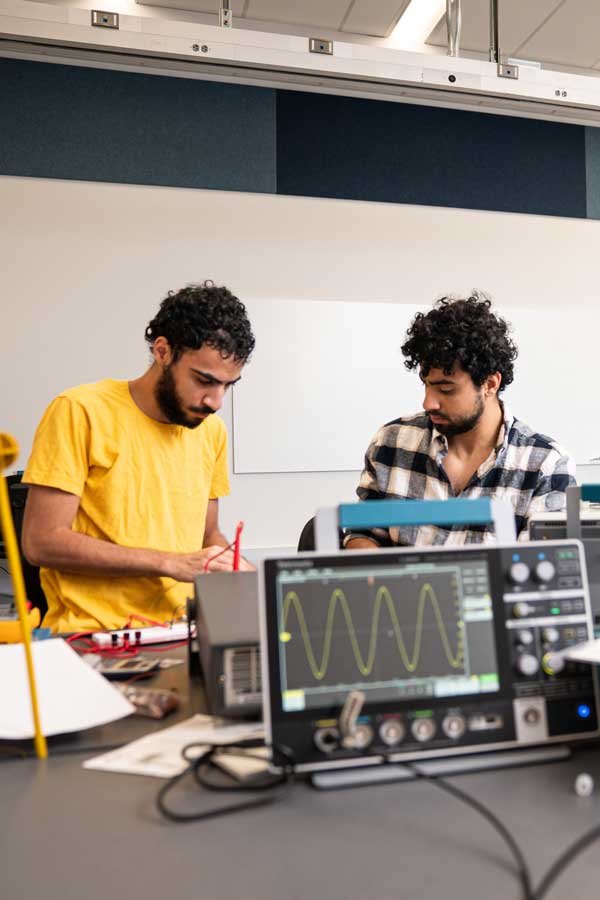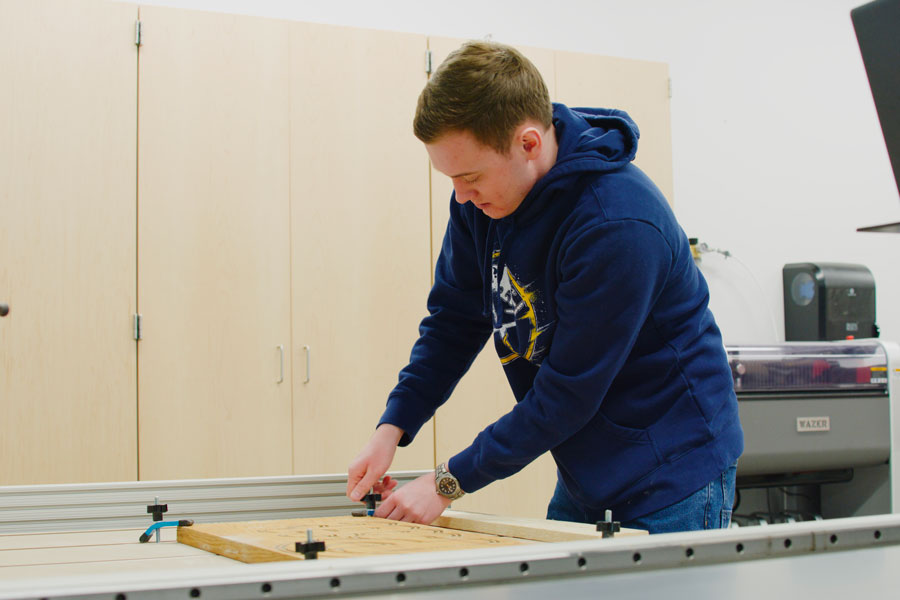
Engineering - BS
The world needs engineers to create new products, design projects, and develop procedures to help solve problems.
Why study engineering at Pitt-Bradford?
You can start working toward your bachelor’s degree in engineering on our friendly, welcoming and close-knit campus.
During your first year, you’ll study chemistry, physics, and calculus and be introduced to engineering analysis and engineering computing. You’ll also participate in a group building project. Your second year of study will depend on what engineering discipline you’re interested in. However, your second-year courses will apply math and physics principles to engineering.
What will I learn?
After you’ve completed all of the prerequisites, you’ll transfer to the Swanson School of Engineering at the University of Pittsburgh to complete your ABET-accredited degree in a specific engineering discipline.
Or, you may choose to continue your studies at Pitt-Bradford and earn your four-year degree in mechanical engineering technology or energy engineering technology.

What can I do with a degree in engineering?
You’ll be prepared for an exciting career in engineering in an array of areas, and, the job market for engineers has been strong. Starting salaries for engineering graduates range from $60,000 to $100,000 a year.
Job titles:
- Application engineer
- Civil engineer
- Electrical engineer
- Environmental engineer
- Manufacturing engineer
- Mechanical engineer
- Process engineer
- Software engineer
Employers:
- Corporations
- Industry
- Design firms
- Government
- Research firms
- Military
- Manufacturing firms
- Transportation
- Technology

Mychal Berlinski ’25 of Allegany, N.Y., won’t graduate until spring with his energy engineering technology degree, but he already has a good idea of what life as a working engineer is like. Last spring and summer, he gained hands-on experience through an internship and a research project.
-
ENGR 0015
Intro To Engineering AnalysisThis course provides an introduction to fundamental engineering topics, emphasizing the role of computers in engineering. Key components include problem-solving strategies, report writing, and data analysis using tools like Unix, HTML, spreadsheets, MATLAB, and Excel. Students will complete four detailed reports and deliver an oral presentation. Course goals encompass understanding the essence of engineering, the importance of workforce diversity, and group collaboration values. Additionally, it aims to develop library research and communication skills, teaching basic analytical and programming techniques essential in engineering. The course also covers the application of basic sciences and mathematics in addressing societal challenges. -
ENGR 0016
Intro To Engineering ComputingIntroduces students to social topics in engineering, the role of the computer in engineering, ill-structured problem-solving and report writing. The course includes material on the use of MATLAB and C++. Students learn the fundamentals of computing in engineering, including program design, program development, and debugging. Applications to problems in engineering analysis with topics selected from ENGR 0011. The writing component includes four detailed reports and includes an oral presentation.
Program-Related News

Students get head start with academy
Early arrival helps first-year students get acquainted with campus and each other.

Baja Racing Club members attend Arizona race
Trip made to prepare for building Baja car in 2025-26.

Pitt bioengineering professor to talk about replacement parts
Dr. Carol A. Baker Speaker Series event to take place March 13.